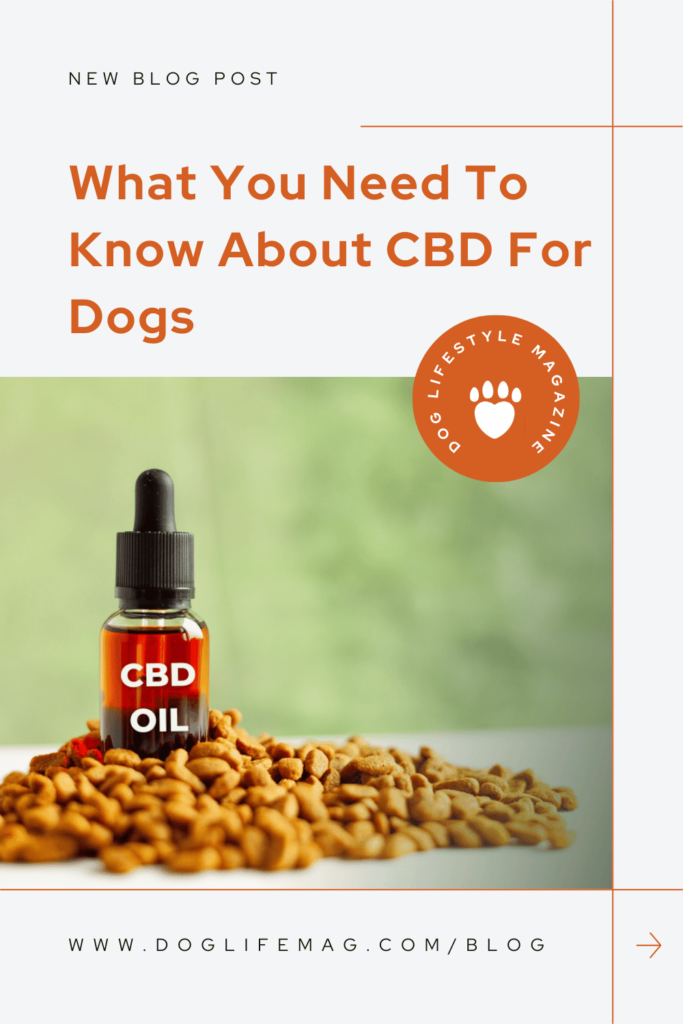The word cannabis conjures up a lot of opinions – maybe even a lot of memories – and certainly a lot of confusion. There are so many terms associated with it – marijuana, medical marijuana, THC, cannabinoids, endocannabinoids, CBD. And now there’s all the chatter about CBD for dogs. What is it? What does it help? Is it safe? Does it really work?
It’s amazing, really, that science’s recognition and understanding of the endocannabinoid system (ECS) is fairly recent relative to other transmitter systems in the body.
We have all learned about the sympathetic (fight-or-flight) and parasympathetic nervous systems in school. But most of us are unfamiliar with the expanse and function of the ECS.
In this article we will cover your questions about CBD for dogs:
- What is CBD versus THC?
- What health and behavioral issues CBD can help in dogs?
- Is CBD safe for dogs?
- What is the best for of CBD for dogs?
- What are the best brands of CBD for dogs?
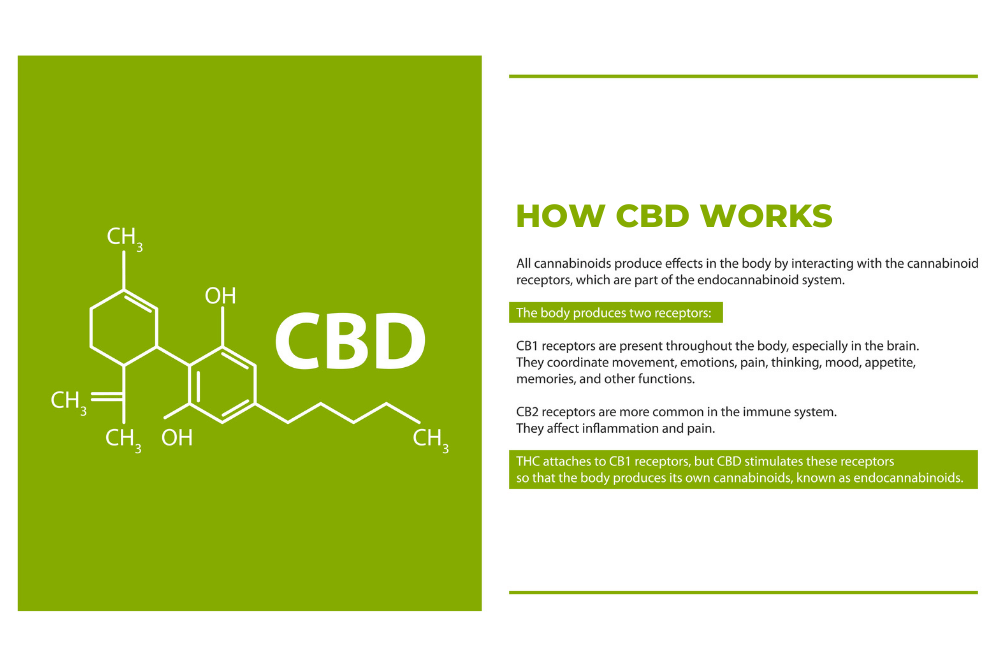
What are cannabinoids and the endocannabinoid system?
Simply put, messages within the body are transmitted via chemical signals and cellular receptors. Pain, hunger, sleep – these are all controlled by “neuro-transportation.”
The ECS is a regulatory system that controls the levels and activity of other systems in the body. Its primary goal is to restore the body to homeostasis by controlling what (and how much) goes into and out of targeted cells.
This is where all the “canna” lingo gets confusing….
Cannabinoids are compounds found in the cannabis and hemp plants. They mimic the endocannabinoids naturally produced in the bodies of all vertebrates.
(Endo simply means “from within.” Therefore, we’re talking about compounds that naturally exist in the body and plant-derived compounds that act like them.)
The ECS has 3 components:
- endocannabinoids (lipids that bind to and activate cannabinoid receptors)
- cannabinoid receptors:
CB1 receptors are found primarily in the central nervous system (CNS);
CB2 receptors are found primarily in the peripheral nervous system, especially immune cells - associated enzymes
Cannabinoids come in over 100 forms. The main cannabinoids are cannabidiol (CBD) and THC – the two you have probably most heard of (and possibly confused).
While THC produces a high, CBD does not. And that difference is essential when understanding the use of CBD for dogs, as THC can be lethal to them.
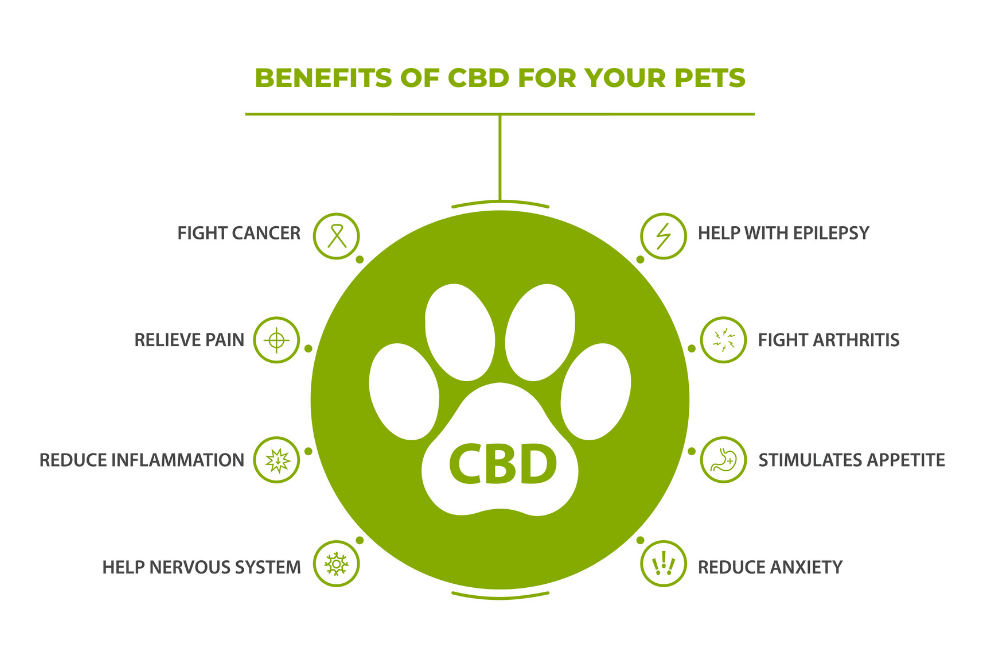
What health and behavioral issues can CBD help in dogs?
If you circulate in canine-impassioned crowds, you have no doubt overheard or participated in conversations about CBD for dogs. And no doubt you have heard testimonials of miraculous healings and downshifts in anxiety and behavioral issues.
One of the most prevalent uses of CBD in dogs is for inflammatory problems, which are often directly related to pain.
Reducing joint inflammation, for example, has been shown to reduce osteoarthritic pain.
And CBD may interact with the ECS and other nerves responsible for creating pain sensations.
Inflammation isn’t limited to the musculoskeletal system. It can also occur, for example, in the CNS, where endocannabinoids are involved in immunomodulation, neuroprotection, and control of inflammation.
Remember those CB2 receptors mentioned above? Well, activation at these receptor sites decreases the pro-inflammatory “bad guys” and increases the anti-inflammatory “good guys.”
Another CNS-related health issue believed to benefit from CBD is epilepsy. When used with traditional antiseizure medications, CBD contributes to lowering the frequency of seizures, perhaps by preventing nerves from over-firing.
Behaviorally, CBD may help with anxiety issues by creating a sense of calm in an anxious dog. Separation anxiety and storm anxiety are two examples that may benefit from CBD.
It’s important to know that there is no conclusive data on the mediation of CBD in canine health issues. Many dog owners, however, swear by its benefits for the issues listed, as well as for appetite stimulation, anti-nausea effects, and cancer benefits.
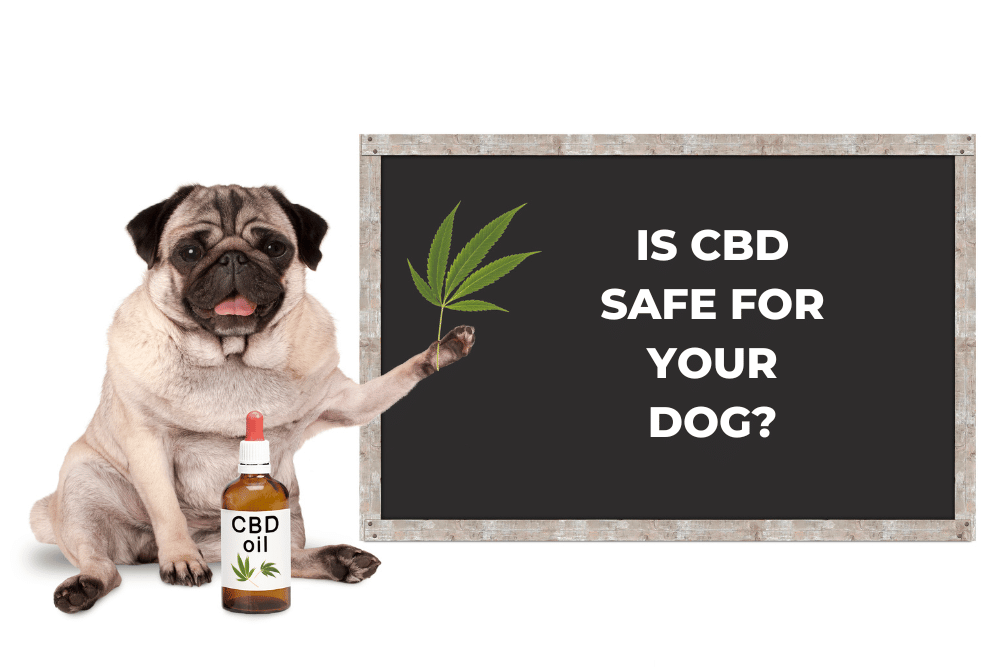
Is CBD safe for dogs?
As with most supplements and many human-grade medications used for veterinary purposes, the FDA has not approved CBD and has not issued a dosing chart. That means there is, as of now, no ideal dosing for dogs.
The Hemp Pharmacist recommends 1-5 mg CBD for every 10 pounds of body weight, administered twice daily. (You can see their dosing chart here.) And most recommendations for administering CBD to dogs fall within that range.
What’s important is that you start slow and monitor your dog for any adverse effects like diarrhea, dry mouth, lowered blood pressure, and lethargy.
Like many supplements, CBD is metabolized by a family of enzymes called cytochrome P450. This chemical is also responsible for metabolizing most drugs, which means that CBD could possibly interfere with medications. So it’s important that you always consult with your veterinarian before starting your dog on CBD!
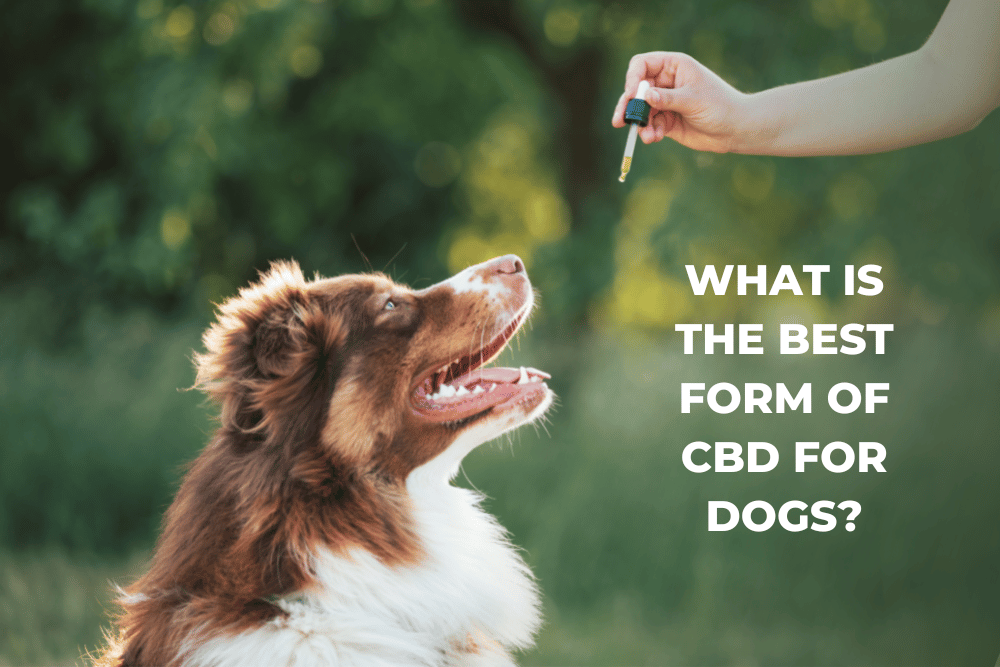
What is the best form and brand of CBD for dogs?
CBD comes in several forms for dogs, just as it does for humans. While you can use CBD capsules or treats, it’s the CBD oil that is most effective.
Look for CBD oil that is organic (or at least pesticide- and contaminant-free). Also look for a third-party certificate of analysis of potency, ingredients, and presence of toxins. You want to ensure there is a high amount of CBD and little or no THC.
Also look for full spectrum (or complete spectrum) CBD over broad spectrum or isolated CBD. When CBD oils are paired with other cannabinoids and terpenes the entourage effect is achieved. The entourage effect strengthens the benefits of the cannabis plant, giving your pet the widest range of help possible. Full Spectrum CBD oil has the most entourage effect, while isolated CBD achieves zero entourage effect. Broad Spectrum CBD oil is CBD isolate with artificially added cannabinoids and terpenes and isn’t considered the best option for achieving the entourage effect.
And never give your dog a CBD edible that is formulated for humans, as it may contain additives like xylitol that are toxic to dogs.
Finally, you can look for the National Animal Supplement Council (NASC) Seal of Quality Assurance and/or the Current Good Manufacturing Practice (cGMP) regulations.
ElleVet Sciences offers a complete spectrum CBD oil that is NASC-approved and manufactured in accordance with cGMP standards, providing some of the highest quality pet CBD oil on the market. While Verma Farms also offers full spectrum pet CBD oils that are pesticide-free, made in the USA, and are in accordance with cGMP standards and 3rd party lab tested for the certificate of analysis.
In Our Experience With CBD For Dogs
Science and medicine may be only a few decades into the discovery of the ECS. But fascination with its regulatory superiority in the bodies of humans and dogs (and other vertebrates) is already leading to new discoveries.
If you are curious about the potential benefits of CBD for your dog, do your research, consult with your vet, and invest in quality products.
And always monitor your dog for both benefits and potential side effects.
Disclosure: DogLifeMag.com is not a doctor, physician or veterinarian. These statements are not intended to replace your doctor, physician, or veterinarian’s advice. These statements are not intended to diagnose, treat, cure, or prevent any disease or illness. These statements have not been evaluated by the FDA. Consult with your veterinarian before giving your pet any new product or supplement. By using this site, you agree to follow the Privacy Policy and all Terms & Conditions printed on this site.
